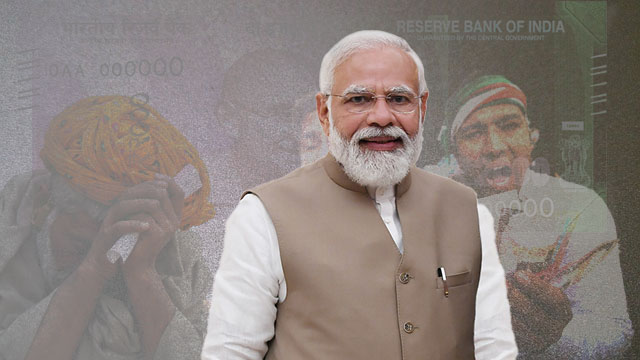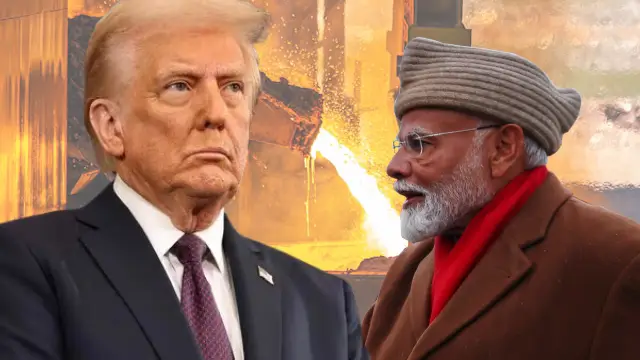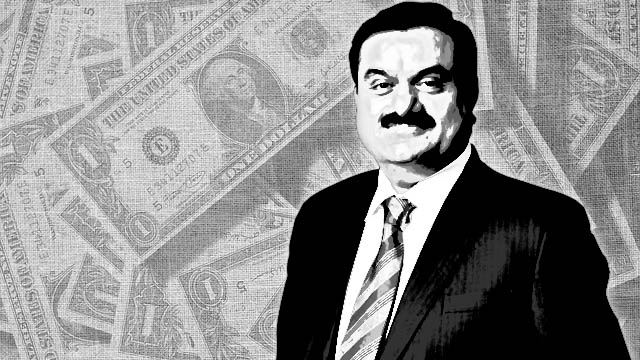After its report on the Adani Enterprises, the Organised Crime and Corruption Reporting Project (OCCRP) has alleged that mining baron Anil Agarwal-led Vedanta was behind a “covert” lobbying campaign to weaken key environmental regulations in India during the Covid-19 pandemic. The OCCRP report on Vedanta has also accused the Union government of being complicit in the act.
The OCCRP report on Vedanta, which was published on Thursday, August 31st, stated that India’s Union government led by Prime Minister Narendra Modi had approved the changes without public consultation and implemented them using what experts say are “illegal” methods.
Although the OCCRP report on Vedanta has combustible materials that can help the Opposition strengthen its attack on the government, it also raises certain doubts about the motive behind these revelations.
The timeline
The OCCRP report on Vedanta showed that Agarwal told former environment minister Prakash Javadekar in January 2021 that the government could add “impetus” to India’s economic recovery from the pandemic by allowing mining corporations to boost production by up to 50% without having to secure new environmental clearances.
The George Soros-backed western news organisation claimed Vedanta’s oil business, Cairn India, also successfully lobbied to have public hearings scrapped for exploratory drilling in oil blocks it won in government auctions.
Vedanta is one of India’s most powerful companies, reporting more than $18bn in revenues last year. Its chairman, Agarwal, is a fan of Modi and publicly praises the prime minister and his policies.
Vedanta is also reportedly an important patron of Modi’s Bharatiya Janata Party (BJP). The OCCRP claimed that the contribution documents it has analysed show that two Vedanta-linked trusts alone donated $6.16m to the BJP between 2016 and 2020.
The year before Agarwal wrote to Modi, Cairn Oil & Gas also started lobbying to scrap public hearings for oil exploration projects. As with mining, the government quietly amended the law with no public consultation.
Since then, according to one of the key findings of OCCRP, at least six of Cairn’s oil projects in the northern deserts of Rajasthan have been greenlit for development.
Modi’s pledge and U-turn
Publicly, Modi has pledged to reduce India’s carbon emissions by a billion tons by 2030 and reach net zero emissions within 40 years after that. However, the OCCRP report on Vedanta claimed that the environmental experts who have reviewed its key findings say that the Modi government has prioritised the interests of oil and mining companies over the fight against climate change.
Vedanta told OCCRP that as “one of the leading natural resources organisations in India”, the company operated “with an objective of import substitution by enhancing domestic production in a sustainable manner”.
Vedanta also claimed that production could boost up economic engines immediately which would not only expedite growth, but also it would generate new employment, thus helping to alleviate poverty in backward areas of the country.
The Modi government has been accused of not creating enough employment during the nine years of its rule. As the pandemic wreaked havoc, the government resorted to large-scale liberalisation of different sectors of the economy to boost investment under Modi’s “Atmanirbhar Bharat” programme.
Corporate appeasement
Liberalisation of mining leases has always topped the agenda of the ruling BJP, which Modi has efficiently implemented without considering the environmental impacts of the decision.
However, the OCCRP report on Vedanta claimed that the experts it has consulted do not agree with the views of mining giants and that of the Modi government.
“It is a clear case of corporate capture of environmental governance”, environmental lawyer Ritwick Dutta was quoted by the OCCRP.
“Over the last few years, it is clear that most changes in environmental laws and policies have been largely guided in terms of the economic benefit it would bring to certain corporate entities or sectors”, Dutta alleged, according to the OCCRP.
Veteran environment activist Rajeev Suri challenged the changes at India’s National Green Tribunal (NGT)–– a judicial body that hears environmental cases –– soon after they were published. In his petition, he argued that public hearings are “one of the most important safeguards for the general public” under environmental law.
The court ruled against Suri, agreeing with the government’s argument that the changes were only procedural.
But Suri’s lawyer, Vanshdeep Dalmia, said he considered some of the details in the documents OCCRP obtained to be grounds for appeal – specifically, minutes from one meeting that show the government’s own Joint Expert Appraisal Committee recommended that mining companies consult with anyone affected in writing at every stage of ramping up production.
Activist Disha Ravi, who has been arrested for her campaigning on behalf of farmers, said the influence of companies like Vedanta must be curbed if India is to protect its environment.
“Allowing big corporations to influence environmental policy is like allowing tobacco manufacturers to influence policy on health and well-being — their interests lie in increasing their bottom line”, she was quoted by the OCCRP report on Vedanta.
A western ploy?
Ever since the Hindenburg Research report exposed Adani’s alleged malpractices, the hyper-pugnacious supporters of Modi and his BJP on the internet have called such reports and organisations “anti-India”. In doing so, they identify the accused capitalists or politicians with India.
The BJP has several times accused the US-based controversial billionaire George Soros—accused of orchestrating coups in different parts of the world to topple governments that are unfriendly to the US—of using these investigations to interfere in India’s internal matters.
After the OCCRP report on Vedanta, and on Adani, the online trolls have accused the organisation of being complicit in a regime-change operation in India, eyeing the 2024 Lok Sabha elections and the upcoming G20 Summit in New Delhi this month.
Though the BJP has not officially defended the accused capitalists, the party’s spokesperson Syed Zafar Islam alleged that “some people” can’t tolerate the growth India is experiencing under Modi. Although Islam didn’t name anyone, it’s clear he was hinting about Soros.
The BJP alleges that the Indian National Congress’s (INC) member of the Parliament (MP) Rahul Gandhi has cordial ties with Soros and works hand-in-glove with him to engineer a coup in India. The INC and Gandhi have refuted the allegations.
The fault line
Both Vedanta and the Adani Enterprises have faced public outrage over their alleged anti-environmental policies.
Adani’s coal mining project in Australia faced stiff resistance from the local community, while several activists have raised a vexing alarm over the pollution caused by coal mining done by the conglomerate in the Indian state of Goa.
Vedanta faced obstinate people’s resistance in states like Chhattisgarh, Odisha and Tamil Nadu. In December 2018, 12 protesters, out of a total of 13, were killed in a police firing in Tamil Nadu’s Thoothukudi, where they were agitating against a polluting copper smelting plant of Sterlite, owned by Vedanta.
By hobnobbing with such tainted capitalists with questionable credentials, India’s ruling party has exposed its faultlines to the world. Now, as India’s press remains highly censored under Modi’s rule and the country’s position skids every year on the press freedom index, it’s the foreign press that’s taking up the job of exposing corporate-political nexus and related scams in India.
Had the Modi government and the ruling BJP exhibited tolerance to a critical press and allowed press freedom to thrive, the West couldn’t have exploited the situation and derived mileage from India’s internal crises and the government’s faultlines.
As elections approach, it’s apparent that Modi still wants to pursue his ambitious far-right agendas. It’s unlikely that the prime minister, who managed to catapult his party’s fortune using his Hindu nationalist charisma, would retreat from the course he has traversed so far.







